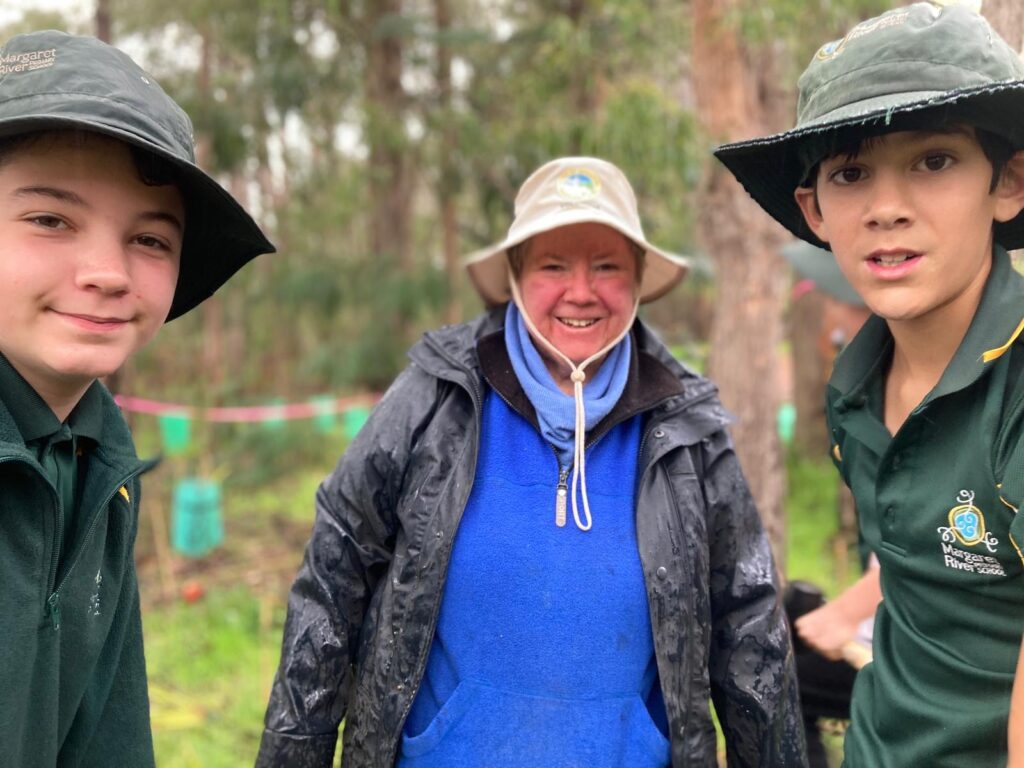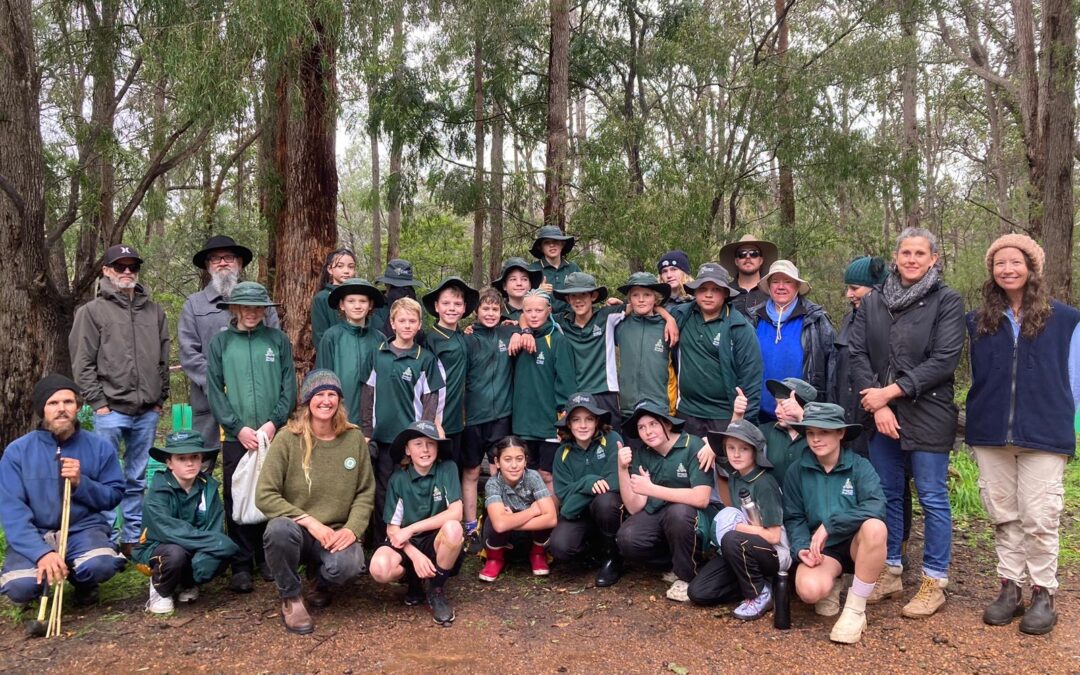Students from Margaret River Primary School are planting hundreds of native plants and revegetating a section of the river near the Barrett Street Weir as part of a mission to protect our native snake-neck turtles.
The Year 6 students joined Nature Conservation Margaret River Region staff, Undalup Association’s Wadandi rangers and elder Wayne Webb, Shire of Augusta Margaret River and Friends of Barrett Street to restore important turtle habitat along the Wooditjup Bilya by planting seedlings which will protect the riverbank, improve water quality and provide vital habitat.
Student Flow Butron said it was “so special to be able to work together to protect the turtles”. “This part of the river is very popular and there are many people visiting here over summer and throughout the year, which can cause damage to the plants if people are not careful,” she said.
“We really hope the community will help us care for it into the future. It will take a while for these plants to grow, and we need help from the community to make sure they survive. Please keep off the rehabilitation area, stay on existing tracks and carparks, keep your dog on a lead and pick up any dog poo, and please protect the turtles’ homes.”
The work is part of Nature Conservation’s youth education program Our Patch, which involves eight classes of Year 6 students from six schools across the Capes region. Each class learns about their local catchment from scientists, landholders and cultural custodians before zeroing in on a unique environmental issue and devising innovative solutions.

Inspired by their research, the students have created and designed turtle T-shirts, which are for sale for $25 each at the MRPS front office. Proceeds will go directly towards supporting students getting involved in turtle habitat restoration along the Wooditjup Bilya.
The exciting nature-based learning in the Our Patch program culminates when each class presents their project and solutions at the Margaret River HEART for the annual Our Patch celebration day on September 12. For the first time, members of the public can attend the Our Patch celebration. All proceeds from ticket sales will go directly towards supporting youth environmental projects. Click HERE for tickets.
Friends of Barret Street member Maureen Munro (pictured, above) said she was “so inspired working with the Year 6 students as we continued rehabilitating the foreshore and bush reserve near Barrett St Weir”. “The students’ project on the snake neck turtle brings new awareness and hope for why we need to restore and maintain healthy habitat along the foreshore,” she says. “It’s an exciting project and I hope the community will protect this important work, and stay out of the replanted area, keeping dogs away as well. This is a much-loved area of our town but suffers from overuse and abuse. I hope we will see increased sightings of native animals and birds that love this habitat.”
Shire president Julia Meldrum said she was “thrilled to see the tremendous work Margaret River Primary School students have done on the revegetation project in the Barrett Street Reserve”. “Their dedication, combined with the expertise shared by the Shire and project partners Undalup Association, Nature Conservation Margaret River Region and the Friends of Barrett Street Reserve, has been incredibly valuable and inspiring for our future bushland regenerators,” she said.”
Margaret River Primary School students decided to focus on the snake-neck turtle when they learned about the apex river predator from Professor Stephen Beatty, one of the state’s foremost experts in freshwater ecology and the deputy director of the Centre for Sustainable Aquatic Ecosystems at Murdoch University.
He wowed the kids with snake-necked turtle facts including that these freshwater animals hold their breath for five hours underwater and survive for 18 months without food or water by living off body fat. The turtles can wait underground for more than 500 days until water floods their burrow, while males are longer than females due to the length of their penis – which is in their tail!
But the turtles have many challenges including the drying climate, predators, wetlands being lost to development, land clearing and loss of riparian vegetation.
Year 6 teacher Mark Harrison said the students are “connecting with the environment and building appreciation and awareness of the need to protect biodiversity and restore the environment”. “Through this program kids realise it’s not someone else’s problem,” he says. “We all live here, and all share a responsibility to be a custodian, to look after and value where we live. It makes the kids consciously aware of the issues in our region and they share that knowledge with their families and the community. They then become the catalyst for change in our region.”
Our Patch is generously funded by the Paskeville Foundation, Shire of Augusta-Margaret River, Lions Club of Cowaramup, Margaret River Rotary and local schools.

